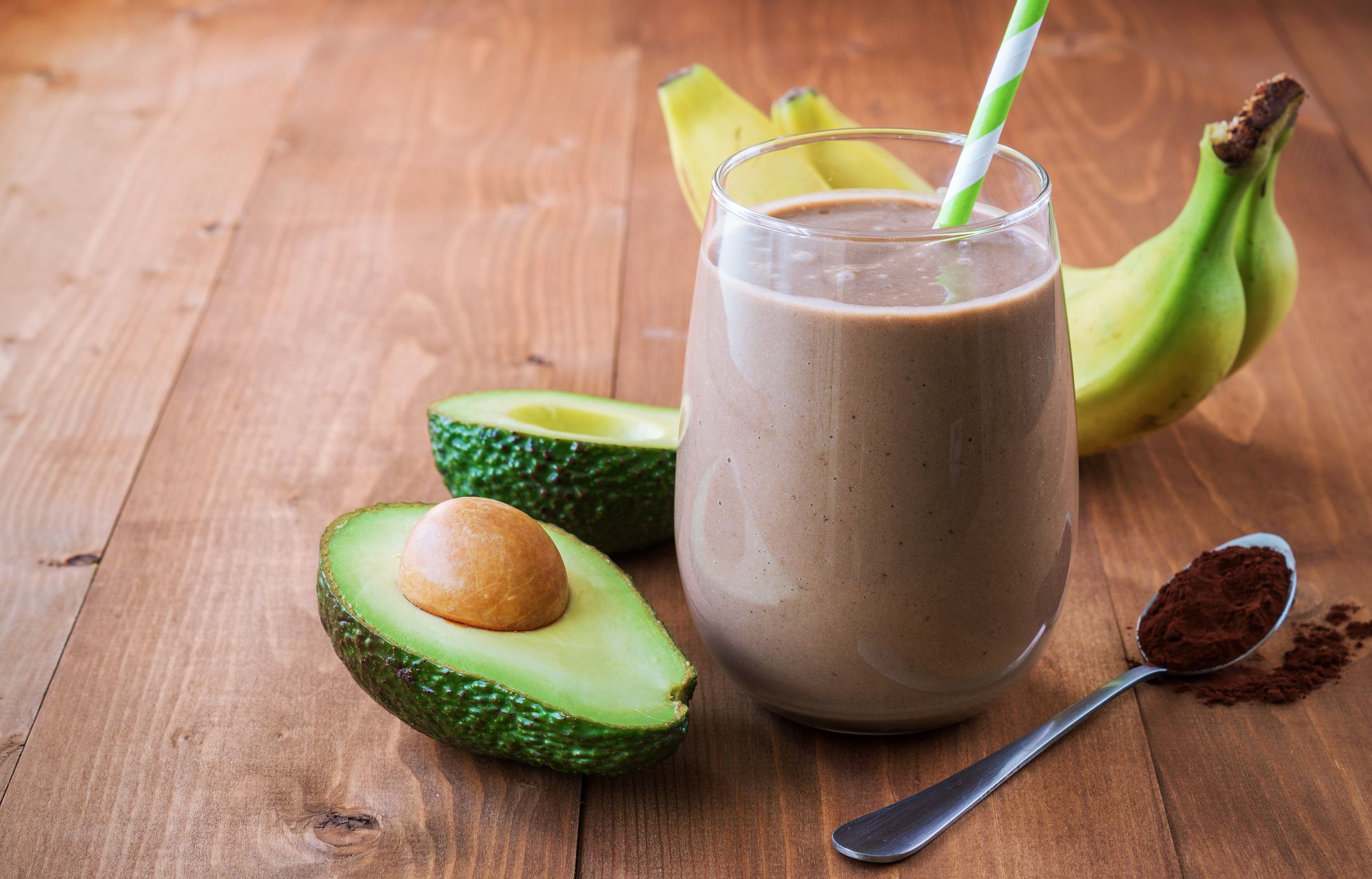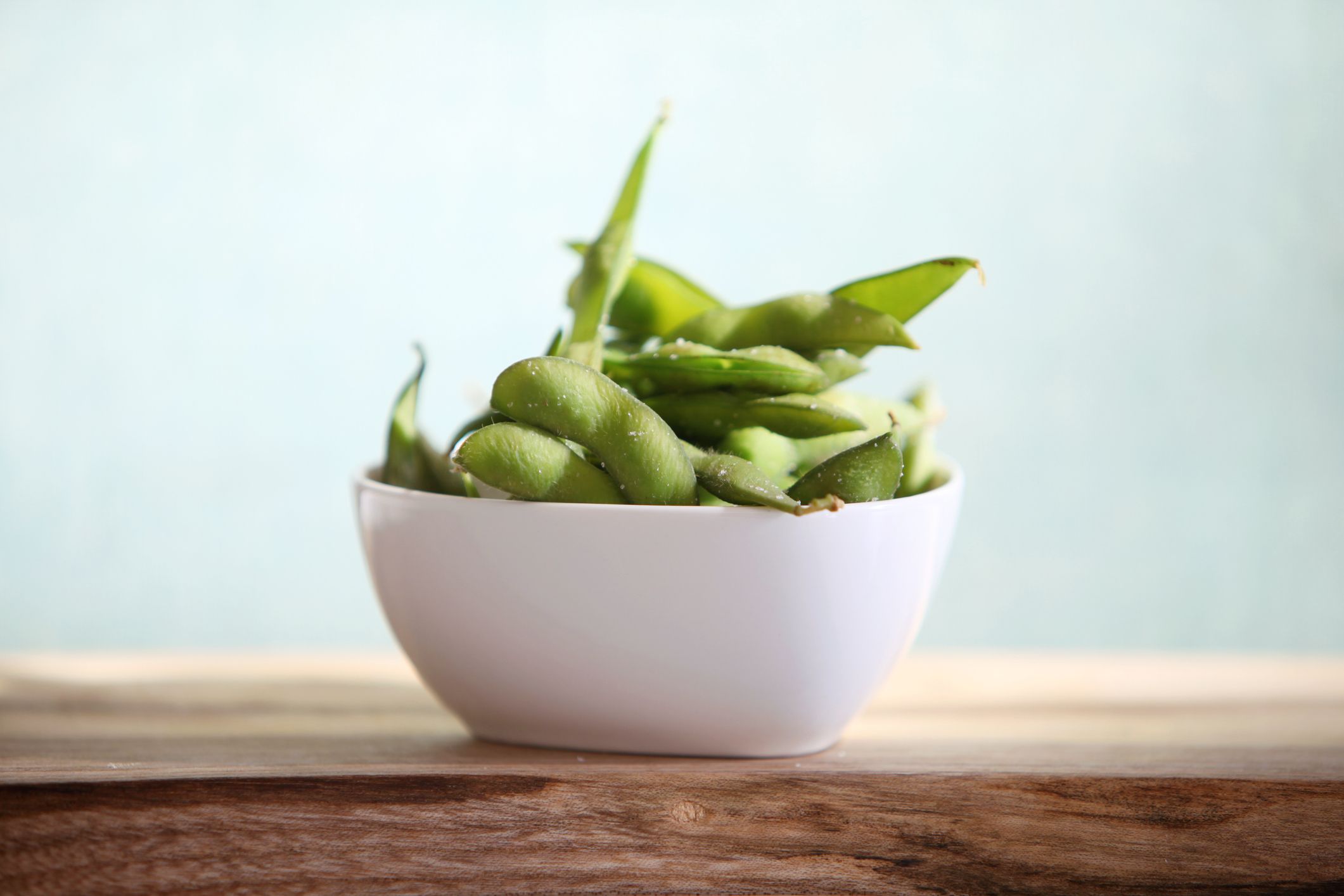Why You Should ALWAYS Check Your Nutrition Label For 'Soy Protein Isolate'
It’s in power bars, some breakfast cereals, and even the Impossible Burger: soy protein isolate.
You know what “soy” is. ✔️
You know what “protein” is. ✔️
But…the isolate part? And the three words strung together? 🤷🏻♀️
Soy protein isolate, a.k.a. SPI, isn’t as confusing as it sounds—promise.
First things first: what is ‘soy isolate protein’?
Hate to be the bearer of boring news here, but soy protein isolate is quite literally just that: protein that’s been isolated from soybeans via chemical engineering. In order to do this, the soybeans are first washed with an acid and then neutralized in an alkaline solution, saysMichal Hertz, RD, a dietitian in New York City.

At the end of the entire SPI-making process, you’re left with a dry powder that’s about 90-95% protein and nearly carbohydrate- and fat-free, according to the Soyfoods Association of America. Because it’s such a protein powerhouse, this plant-based powder is typically used to enrich other packaged foods from protein bars to veggie burgers. Oh, and you can also blend it into smoothies.
Is SPI healthy?
There’s no denying the fact that SPI is super-charged with protein, but beyond that, its nutritional profile is nothing to write home about.
Here’s a complete breakdown of SPI’s nutrition per 1-ounce serving, according to the USDA:
- Calories: 95
- Fat: <1 gram
- Carbohydrates: 0 grams
- Fiber: 0 grams
- Sugar: 0 grams
- Protein: 25 grams
- Sodium: 285 mg
Sure, when you just look at SPI’s numbers by themselves, they don’t seem too shabby. You’ll want to keep in mind that the acid-washing process strips out the nutrients like fiber, zinc, calcium, magnesium, and iron that you’ll find in whole soybeans, though.
There’s also a lot of stuff hiding in the powder that gets introduced during chemical processing, including metals like aluminum and hexane (and as a rule of thumb, Hertz encourages patients to limit the amount of metals in their diet because they can be toxic in large amounts).
Also a little eyebrow-raising: When SPI is being made, a spray-drying process follows acid washing—and that can lead to nitrites being introduced into the formula.
https://www.instagram.com/p/BuYJgRqFdQs/
🌿✨When it’s not quite pancake day…✨Another breakfast from the weekend🌿 ⠀⠀⠀⠀⠀⠀⠀⠀⠀⠀⠀⠀⠀⠀⠀⠀⠀⠀⠀⠀⠀⠀⠀⠀⠀⠀⠀⠀⠀⠀⠀⠀⠀ ⠀⠀ ✨All of my favourite @myproteinuk products in one to build this crumpet stack 🤤 I’ve been seeing crumpets all over my feed recently and I was very much influenced to buy some 👌🏼 bit too early to be building pancake stacks for pancake day but we got a crumpet stack instead 🙌🏼 So I used 3 crumpets which I grilled in a girl for 5 mins! ✨I then layered the stack with soy yogurt mixed with @myproteinuk vanilla soy isolate aswell as a drop of @MyProteinuk toffee drops, and strawberries! Topped with more berries and @myproteinuk powdered PB ✨ ⠀⠀⠀⠀⠀⠀⠀⠀⠀⠀⠀⠀⠀⠀⠀⠀⠀⠀⠀⠀⠀⠀⠀⠀⠀⠀⠀⠀⠀⠀⠀⠀⠀ ⠀⠀ 🌿✨ My protein has got you sorted for the big day as you can purchase an easy ‘Pancake Bundle’ or the ‘Vegan Pancake Mix’! Remember you can get 35% off the bundle using my discount code and link in my bio!! Let’s get stacking shalll we?!?❤️✨🌿
A post shared by🌿 𝐋𝐄𝐈𝐋𝐀 𝐇𝐀𝐍𝐍𝐎𝐔𝐍🌿 (@abcdefghijkleila_) on
So, should you eat it?
Ehhh…pros caution against it. “I don’t recommend consuming SPI,” says Eliza Whetzel, RD, also a dietician in New York City. “It’s highly processed and chemically treated, which has been shown to interfere with thyroid function and cause gastric distress.”
Those potential G.I. issues come into play because SPI has a higher level of something called trypsin inhibitors, or chemicals that mess with your body’s digestion, Hertz explains. So if you have a sensitive stomach, you’ll probably want to steer clear of SPI.
One more thing to note: SPI is often genetically modified because a majority of the soybeans grown in the US are genetically modified, per the USDA. So if GM foods are something you try to avoid…take note.
Is there a smarter substitute for SPI?
If you’re a fan of soy and a protein-seeking vegetarian, it’s going to be tough to avoid all processed soy products—they’re in so many things! But both Whetzel and Hertz recommend opting for organic non-GMO natural sources of soy when you can, like edamame, tofu, miso, and tempeh.

That said, soy, like pretty much everything, is best in moderation—no matter how you’re consuming it. If you’re looking for ways to step up your protein intake, mix it up with these expert-approved plant-based proteins: beans, legumes, lentils, nuts, and quinoa.
Source: Read Full Article
